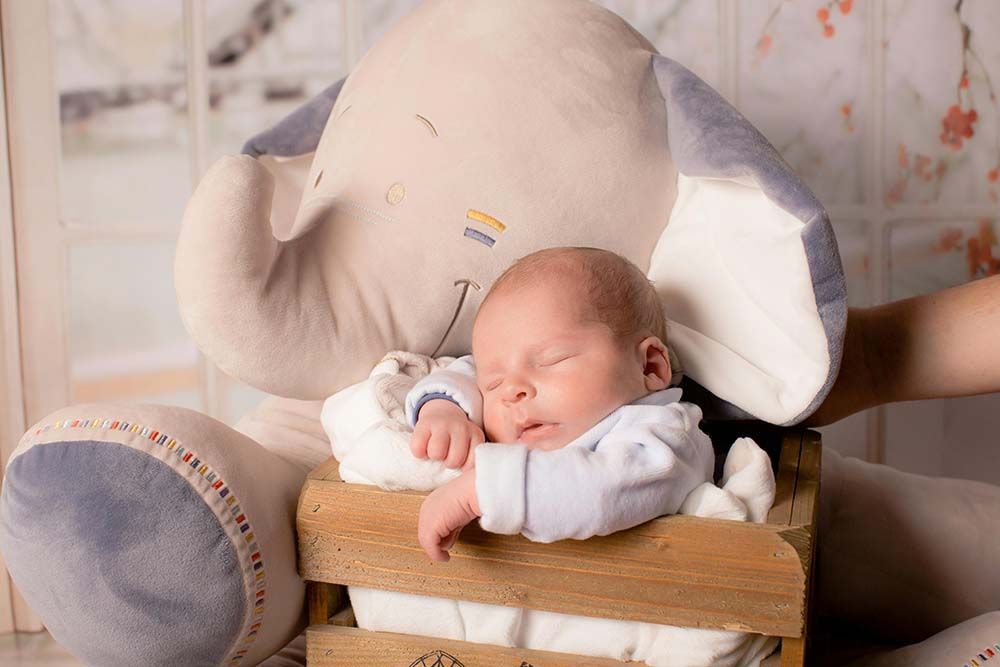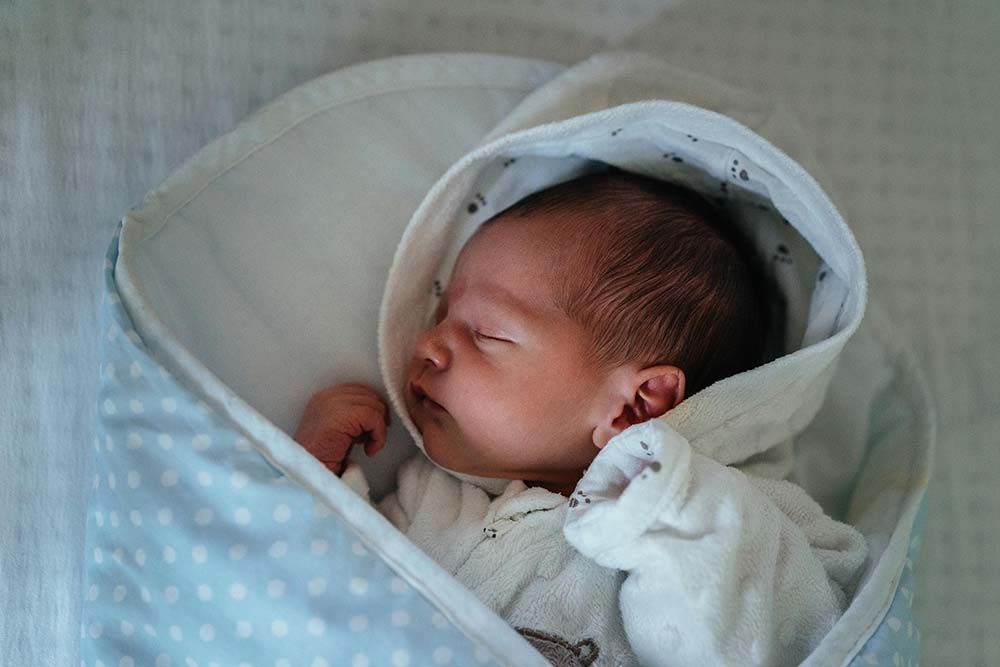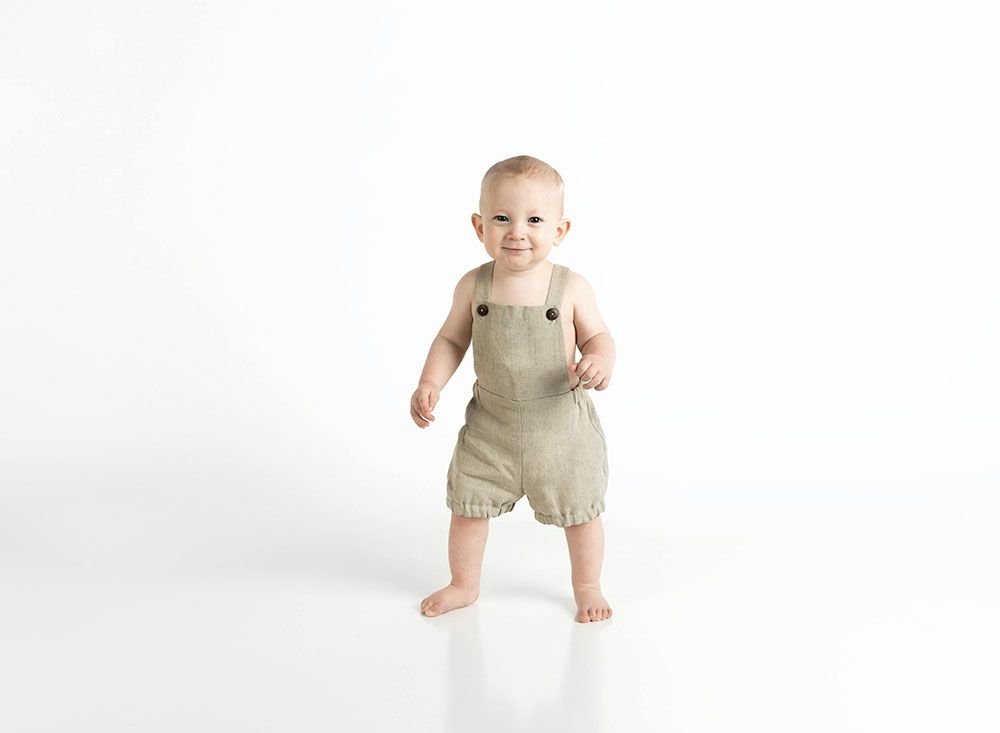

Generally speaking, when an infant is tired, it helps fall asleep smoothly. However, if it is too tired, the opposite result may be obtained. An overtired infant won’t sleep because the body may produce hormones that make the infant exciting and hard to calm down, even though they are extremely tired in bodies. Thus, how to comfort an overtired infant to sleep? And how to prevent infants from being overtired? If you want to know the answer, please keep on reading this article for more details.
The Easiest Way to Keep your Infant from Overtired
Rather than observing your baby’s sleepy or tired cues, there is an easier way to prevent your infant from being overtired. Moonycare is a professional baby tracker app, which can not only track all your baby’s activities, such as feeding, sleeping, napping, changing diapers, bathing, etc., but also will predict a reasonable and customization sleep schedule for your baby’s condition. Moreover, according to your baby’s wake windows and activities, it will alarm you when to make your baby fall asleep, keeping your baby far from being overtired effectively.
IN THIS ARTICLE
What are the Signs That Babies are Overtired?
How to Make an Overtired Infant Fall Asleep?
How to Prevent Infants from Being Overtired?
How Long does it Take for an Overtired Baby to Catch up on Sleep?
Will an Overtired Baby Eventually Sleep?
Signs of Chronically Overtired Baby
When a baby is excessively fatigued, a series of physiological and behavioral signs may appear. Promptly identification of these signs and taking corresponding measures can help babies rest better and avoid the negative effects of excessive fatigue. Here are some common signs of overtired infant:
- Mood swings, becoming unusually irritable or irritable, and frequent crying.
- Overtired babies may be harder to soothe than usual, even with methods that usually soothe them.
- Babies may show obvious signs of sleepiness, such as rubbing their eyes and yawning, but have difficulty falling asleep or appear to be struggling.
- Frequent yawning:
- Difficulty concentrating:
- Overexcited or quiet behavior, depending on the individual
- The baby's eyes may look tired, with drooping eyelids, dull eyes, and even red eyes.
- Some babies may no longer be interested in eating and show signs of refusing bottles or breast milk.
How to Make an Overtired Infant Fall Asleep?
Helping an overtired infant fall asleep often requires a gentle and regular approach designed to relax and ease him into a deep sleep. Here are some tips to try:
1. Create a quiet sleeping environment
Reduce noise and light: An overtired baby may be more sensitive to sounds and light in the environment. Reduce distractions by turning off the TV, lowering the volume, and closing the curtains or blocking the windows to create a warm, peaceful environment.
Keep the temperature right: Make sure your baby's room is a comfortable temperature, generally around 20-22°C. Too hot or too cold can affect your baby's sleep quality.
2. Use soothing techniques
Pat or rock slightly and regularly: Gently patting your baby's back, buttocks or calves, or gently rocking your baby's body, can help soothe your baby and promote sleep.
Hold and stroke: Some babies may need physical contact to calm down when they are overtired. Hold your baby in your arms and gently stroke his back to give him a sense of warmth and security.
3. Create a consistent bedtime routine
Fixed bedtime routine: Try to keep a consistent bedtime routine every night, such as taking a warm bath, changing into pajamas, listening to soft bedtime music or stories, which will help your baby develop a regular schedule.
Avoid stimulating activities: Avoid too many stimulating activities before bed, such as overly exciting play or strenuous exercise, which may make it more difficult for your baby to relax.
4. White noise or soothing music
White noise: Some babies fall asleep more easily with background white noise, such as the sound of a fan, the sound of a washing machine, or a white noise machine designed specifically for babies. It can help your baby block out interference from the outside environment and provide a comfortable sleeping environment.
Soft music or lullabies: Soft music or lullabies can sometimes help your baby calm down and relieve fatigue.
5. Avoid overstimulation
Stay away from screens and bright light: Avoid exposing your baby to electronic device screens (such as mobile phones, TVs, tablets) one hour before bedtime, because blue light can interfere with your baby's biological clock and affect falling asleep.
Avoid overfeeding: Although an overtired baby may refuse to feed, force-feeding may make the baby more emotional and not conducive to sleep. If the baby sucks before bed, you can feed gently, but avoid interfering with the baby's sleep pattern too much.
6. Give the baby time
Avoid forcing the baby to sleep immediately: Sometimes babies may need some time to relax, especially when they are overtired. Give the baby some space and avoid over-intervention, allowing him to slowly calm down on his own.
Be patient: An overtired baby may take more time than usual to fall asleep, so be patient and don't be too anxious or rush your baby to sleep.
7. Use comfort items appropriately
Pacifier: Some babies like pacifiers, which can help soothe emotions and help babies fall asleep. If the baby is used to using a pacifier, you can provide it at bedtime.
Blanket or small toy: For some babies, holding a familiar small blanket or toy can increase their sense of security and help them fall into a deep sleep.
8. Warm physical contact
Warm hugs: Sometimes babies may just need a hug and close contact from their parents to calm down. You can hold your baby when he is tired to give him a sense of security until he relaxes and falls asleep.
9. Pay attention to your baby's physical needs
Check if the diaper is wet: An overtired baby may ignore the discomfort of the diaper. Check and change wet diapers in time to avoid interrupting the baby's sleep due to discomfort.
Make sure your baby is not physically uncomfortable: Overtiredness may also be caused by hunger, stomach discomfort or other discomfort. If your baby seems particularly irritable, check if these physical needs are not met.
All in all, helping an overtired baby fall asleep requires patience and consistency. Every baby has different needs, so it is important to find the method that works best for your baby. However, although some comfort methods (such as holding your baby) may be effective when your baby is tired, long-term reliance on the same method may make your baby dependent, making it more difficult to fall asleep in the future. Therefore, gradually cultivating your baby's ability to fall asleep independently in different situations is also a long-term goal.
How to Prevent Infants from Being Overtired?
The key to preventing your baby from being overtired is to identify your baby's fatigue signals, arrange your sleep schedule and napping routine reasonably, avoid your baby being awake for a long time, and ensure that the sleeping environment is comfortable and quiet. Excessive fatigue not only affects your baby's mood and immunity, but may also interfere with your baby's growth and development. Here are some practical strategies to help prevent your baby from being overtired:
1. Establish a regular sleep schedule
A regular sleep schedule is essential for your baby's sleep and can help them avoid being overtired.
Fixed sleep schedule: Try to get your baby to bed and get up at a fixed time every day. This helps your baby's biological clock regulate and avoids fatigue accumulation due to irregular sleep schedules.
Regular nap times: Make sure your baby gets enough sleep during the day, especially infants, who usually need multiple naps.
Bedtime ritual: Establishing a set of fixed bedtime activities (such as bathing, feeding, listening to soft music, etc.) can help your baby relax and form regular sleep habits.
2. Identify fatigue signals in time
When your baby is tired, there will be some obvious signs. Identifying these signs in time can help parents prevent their baby from being overtired. Once you notice these signs, you should arrange your baby to sleep immediately to prevent them from being overtired and having more trouble falling asleep.
3. Avoid long wake windows for your baby
Babies have a limited tolerance for wake time, and long wake times can easily lead to overtiredness, especially for infants. Adjust the wake time according to your baby's age to avoid your baby from being overtired after being overly awake.
How to arrange wake windows by age:
0-2 months: 30 to 90 minutes
2-4 months: 1 to 1.5 hours
4-6 months: 1.5 to 2.5 hours
7-9 months: 2 to 3.5 hours
10-12 months: 2.5 to 4 hours
4. Arrange daytime naps
Appropriate naps are essential for your baby's growth and development, even though the nap time is short. Making sure your baby gets enough rest during the day can prevent overtiredness at night.
Ensure adequate nap time: Arrange nap time according to your baby's age. Babies under 1 year old usually need 3-4 naps a day, while babies over 1 year old usually need 2 naps a day.
Avoid naps too late: Your baby's afternoon nap should not be too long or too late, otherwise it may affect sleep at night. Try to avoid your baby taking a nap after 3 pm to avoid difficulty falling asleep at night.
Proper environment: Create a quiet and comfortable environment for your baby to take a nap and avoid too much disturbance. The comfort of the sleeping environment is crucial to the quality of your baby's sleep.
5. Avoid overstimulation and excitement
Avoid overstimulation of your baby's brain and emotions during their daily activities, especially when they are close to bedtime.
Avoid strenuous activities: Avoid letting your baby participate in strenuous activities such as jumping, running, and overly intense games 1-2 hours before your baby's bedtime, as these activities will make your baby more excited and difficult to fall asleep.
Reduce excitatory activities: Choose some calm and soothing activities before bedtime, such as reading, listening to soft music, or doing gentle massage to help your baby relax.
Avoid electronic screens: Try to avoid your baby from contacting electronic screens such as mobile phones, TVs, or tablets before bedtime, because blue light will inhibit the secretion of melatonin and interfere with your baby's sleep.
6. Adjust your baby's eating time
There is a close connection between eating and sleeping. Babies eating too much or too little will affect their sleep quality, thereby increasing fatigue.
Avoid overfeeding before bedtime: Especially when your baby is young, avoid overfeeding before bedtime, because being too full may cause discomfort and affect sleep.
Establish regular feeding time: Try to ensure that your baby gets enough nutrition during the day and avoid eating too much or too little at night.
Night feeding: For younger babies, night feeding is normal, but try to avoid over-reliance on night feeding to fall asleep, so as not to form bad sleeping habits.
7. Optimize your baby's sleeping environment
The baby's sleeping environment directly affects its sleep and sleep quality. Improving the sleeping environment helps the baby rest and prevents excessive fatigue.
Appropriate room temperature: Keep the temperature of the baby's room appropriate, usually 20-22°C is the best. If the room temperature is too high or too low, it may cause discomfort to the baby and affect sleep.
Create a quiet environment: Keep the baby's sleeping environment quiet and avoid too much noise interference. You can consider using a white noise machine to help your baby fall asleep.
Light adjustment: dim the room light when sleeping, avoid strong light stimulation, and use a soft night light to help the baby fall asleep.
8. Observe and adjust the baby's sleep needs
Each baby has different sleep needs. Some babies are born to sleep more, while others are relatively less. As the baby grows older, their sleep needs will change, and parents need to observe carefully and adjust them in time.
As the baby grows older, their sleep needs will gradually decrease. If you find that the baby cannot fall asleep during the normal schedule, it may be that their sleep needs have changed and the nap time needs to be adjusted.
If the baby can gradually soothe himself to sleep, you can start to gradually reduce their dependence on their parents and cultivate the habit of falling asleep independently.
How Long does it Take for an Overtired Baby to Catch up on Sleep?
The time required to soothe an overtired baby varies depending on the baby's age, personality, tiredness, soothing method, and environmental factors. Generally, soothing an overtired baby may take from a few minutes to half an hour, and sometimes it may take longer. It should be noted that if the baby is very overtired and very emotionally unstable, it may become more difficult to soothe. If the baby is only slightly tired, he can usually be soothed and fall asleep within 10-20 minutes. If the baby is moderately tired, it may take 30-45 minutes to soothe and fall asleep. If the baby is extremely tired, it may take 45 minutes to an hour or even longer to soothe and fall asleep.
Will an Overtired Baby Eventually Sleep?
Although the process may be difficult, overtired babies usually fall asleep eventually. The reason is that babies' bodies automatically go to a resting state, especially when their fatigue level is high enough, their bodies and brains will send strong signals to prompt them to fall asleep.
It should be noted that this process may be longer and babies may be more emotional. They may even experience a state of "overtiredness". In this state, their bodies may secrete more stress hormones (such as cortisol), which makes it more difficult for them to calm down.
Although overtired babies usually fall asleep eventually, the process can be difficult and requires some patience. During this process, parents can try different soothing methods and create a quiet and comfortable environment to help babies calm down as soon as possible and fall asleep smoothly.
























